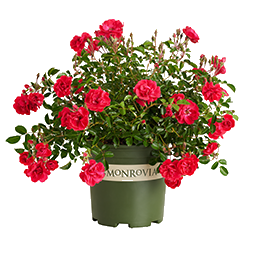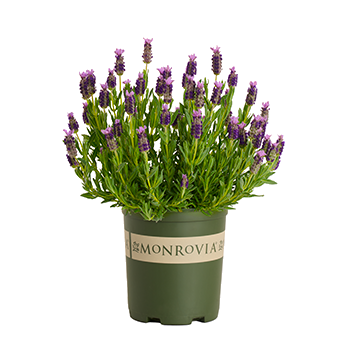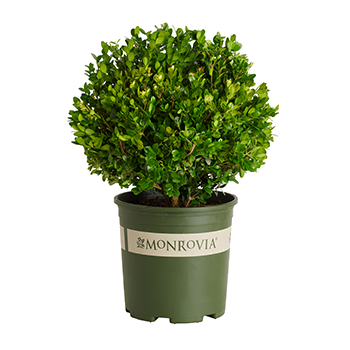You're growing in this Zip Code:
Change LocationDiscover Plants for Your Area
Balmy™ Lilac Bee Balm
Monarda didyma 'Balbalmac' PP #26,594
Retailers Near You
| Description | Boldly colored, shaggy, lilac-purple flowers bloom in abundance atop a compact plant with very dark green, fragrant minty-basil-scented foliage. Resists powdery mildew better than others. Plant en masse for an inviting display of color in sunny borders and containers. An herbaceous perennial. |
|---|---|
| Bloom Time | Late spring to early summer |
| Deciduous/Evergreen | Herbaceous |
| Special Features | Easy Care, Improved Pest and Disease Resistance, Attracts Pollinators, Fast Growing, Compact Form |
| Problems/Solutions | Deer Resistant, Rabbit Resistant, Very Wet Areas, Black Walnut Tolerant |
| Growth Rate | Moderate |
| Flower Attributes | Flowers for Cutting, Fragrant, Showy Flowers |
| Patent Act | Asexual reproduction of plants protected by the Plant Patent Act is prohibited during the life of the patent. |
| Landscape Use | Border, Container |
| Flower Color | Purplish-pink |
| Foliage Color | Dark Green |
| Companion Plants | Iris (Iris); Twisted Rush (Juncus); Turtlehead (Chelone); Dogwood (Cornus); Crossvine (Bignonia) |
| Care Instructions | Easily grown in humusy, rich, moisture-retentive soils, but highly adaptable to a variety of soils. Water deeply and regularly during the first growing season to establish an extensive root system. Once established, maintain evenly moist soil; does not tolerate dry conditions. Hard prune old foliage annually, before new growth emerges in spring. |
| Lore | The Balmy Bee Balms are more compact and considerably shorter than other varieties of monarda, and are notable for their very mildew resistant foliage. Although they are not specifically deer resistant, rabbit and deer are less inclined to eat monarda than many other plants. The Balmy series is a dwarf cultivar from the Monarda didyma species and includes vivid shades of purples and pinks. |
| Description | Boldly colored, shaggy, lilac-purple flowers bloom in abundance atop a compact plant with very dark green, fragrant minty-basil-scented foliage. Resists powdery mildew better than others. Plant en masse for an inviting display of color in sunny borders and containers. An herbaceous perennial. |
|---|---|
| Bloom Time | Late spring to early summer |
| Deciduous/Evergreen | Herbaceous |
| Special Features | Easy Care, Improved Pest and Disease Resistance, Attracts Pollinators, Fast Growing, Compact Form |
| Problems/Solutions | Deer Resistant, Rabbit Resistant, Very Wet Areas, Black Walnut Tolerant |
| Growth Rate | Moderate |
| Flower Attributes | Flowers for Cutting, Fragrant, Showy Flowers |
| Patent Act | Asexual reproduction of plants protected by the Plant Patent Act is prohibited during the life of the patent. |
| Landscape Use | Border, Container |
|---|---|
| Flower Color | Purplish-pink |
| Foliage Color | Dark Green |
| Companion Plants | Iris (Iris); Twisted Rush (Juncus); Turtlehead (Chelone); Dogwood (Cornus); Crossvine (Bignonia) |
| Care Instructions | Easily grown in humusy, rich, moisture-retentive soils, but highly adaptable to a variety of soils. Water deeply and regularly during the first growing season to establish an extensive root system. Once established, maintain evenly moist soil; does not tolerate dry conditions. Hard prune old foliage annually, before new growth emerges in spring. |
|---|
| Lore | The Balmy Bee Balms are more compact and considerably shorter than other varieties of monarda, and are notable for their very mildew resistant foliage. Although they are not specifically deer resistant, rabbit and deer are less inclined to eat monarda than many other plants. The Balmy series is a dwarf cultivar from the Monarda didyma species and includes vivid shades of purples and pinks. |
|---|
Retailers Near You
About Us
We have been pioneers and craftsmen in the art of growing plants for nearly
100 years. Since our founding in Southern California by Harry E. Rosedale, Sr.
in 1926, we have been absolutely dedicated and obsessed with quality.
We have been pioneers and craftsmen in the art of growing plants for nearly 100 years. Since our founding in Southern California by Harry E. Rosedale, Sr. in 1926, we have been absolutely dedicated and obsessed with quality.








